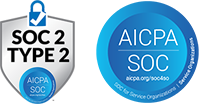What Is Data Management?
Data management is the structured practice of collecting, storing, organizing, and maintaining data to ensure it remains accurate, secure, and accessible throughout its lifecycle. In HR and people analytics, this means managing sensitive information such as employee records, payroll, and performance data. Essentially, effective data management supports informed decision-making and compliance with privacy standards.
Key Aspects of Data Management
Effective data management spans several essential areas:
Data Collection
Gathering data from various sources such as HRIS, ATS, payroll systems, and surveys. Consistent and standardized collection ensures clean inputs for reporting and analysis.
Data Storage
Keeping data in secure, well-organized cloud-based or on-premise systems to ensure durability and quick retrieval.
Data Organization
Structuring data to reflect logical relationships between elements (like employees and departments), making it easier to navigate and analyze.
Data Protection
Implementing safeguards such as encryption, access controls, and backup protocols. This prevents unauthorized access, loss, or tampering.
Data Usage
Making data accessible for reporting, forecasting, and strategic decisions. Usability is critical to turning stored data into meaningful insight.
Data Governance
Establishing rules, roles, and processes to ensure that data is used responsibly and in compliance with legal and ethical standards.
Data Quality
Ensuring data is accurate, complete, and up to date through validation, deduplication, and regular reviews.
Why Data Management Matters in HR Analytics
In HR, where decisions directly impact employee experience, retention, and operations, good data management is foundational. Without it, teams may face fragmented systems, inconsistent records, and unreliable insights.
Strong data management supports:
Data Accuracy
High-quality data improves trust in reports and dashboards, ensuring metrics like turnover or engagement reflect reality.
Faster, Informed Decisions
Well-structured and accessible data allows HR professionals to act with confidence when addressing workforce needs or business goals.
Regulatory Compliance
Clear data governance and secure storage help meet requirements under laws like GDPR or CCPA, reducing legal and reputational risks.
Operational Efficiency
Centralized and validated data reduces the time spent on manual tasks like cross-referencing spreadsheets, freeing up teams to focus on strategy.
Frequently Asked Questions: Data Management
What is data management in HR?
It’s the process of organizing and maintaining employee data so it remains usable, secure, and accurate. Effective data management supports everything from compliance to workforce planning.
Why is data management important in HR analytics?
Good data management ensures that HR insights are based on consistent and complete information, making analytics more accurate and decision-making more reliable.
What are the main components of data management?
They include data collection, storage, organization, protection, governance, usage, and quality — covering the full data journey from input to analysis.
How do I know if my data management process needs improvement?
Warning signs include duplicate records, missing information, difficulty consolidating data across systems, or frequent reporting errors. If decision-makers lack trust in data, it’s time to reassess.
Is data management only relevant to large enterprises?
No. Even small and mid-sized businesses benefit from managing data properly. Clean, connected data supports better forecasting, compliance, and daily operation regardless of company size.
What are common challenges in data management?
Organizations often struggle with fragmented systems, inconsistent data formats, lack of governance policies, and limited visibility. These issues can lead to unreliable reporting and delayed decision-making.
How does data management relate to data privacy laws?
Data management ensures personal information is handled according to regulations like GDPR or CCPA. It involves access control, data lifecycle tracking, and audit readiness.
Can good data management improve employee experience?
Yes. When HR teams have timely access to accurate data, they can respond faster to employee needs, personalize initiatives, and create more informed engagement strategies.
Conclusion: Data Management for Modern HR Teams
Data management plays a critical role in ensuring that HR teams have accurate, secure, and usable information to support their goals.
With tools that simplify access, improve quality, and enhance usability, SplashBI is a valuable option for organizations looking to strengthen their data foundation and enable smarter, more confident people decisions.



